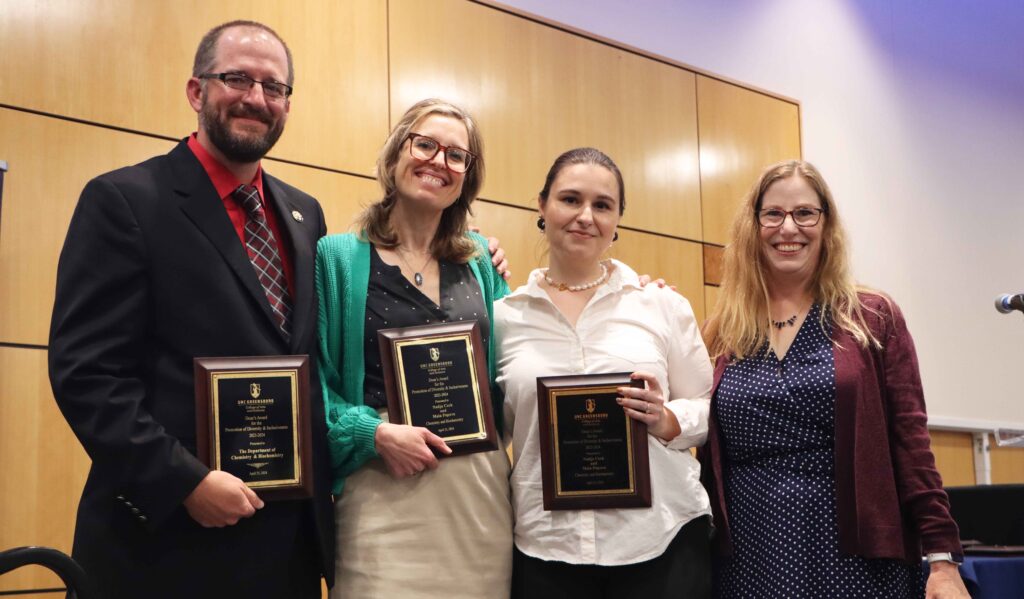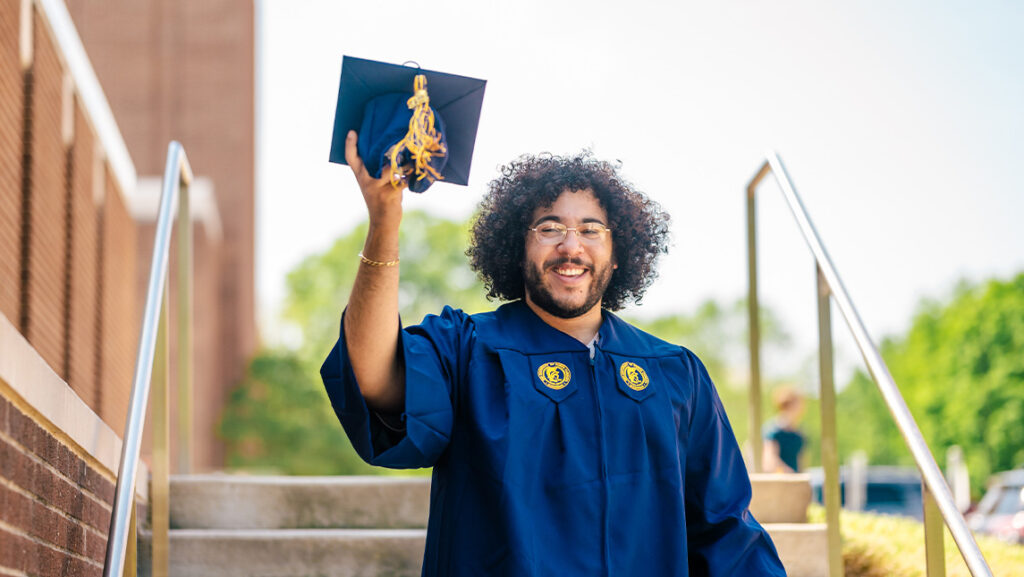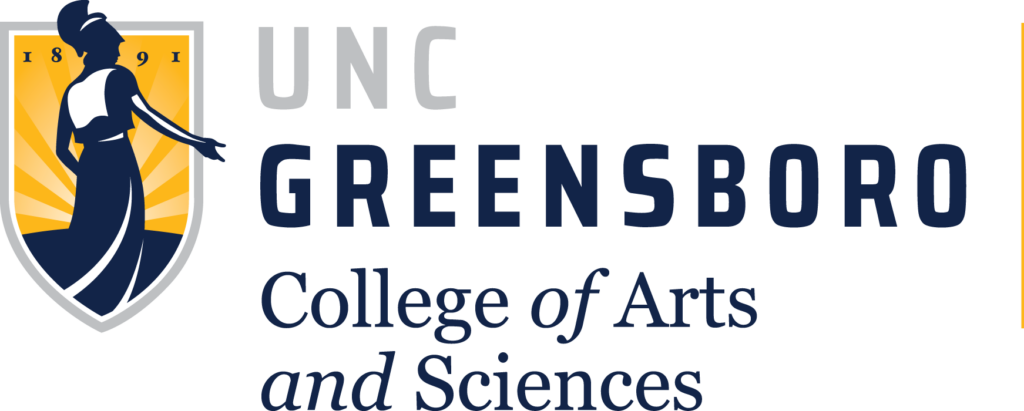Dr. Dan Yasaki, Professor and Director of Student Success in the Department of Mathematics, has received an $87,000 grant from the National Science Foundation as part of a collaborative proposal: “Building Confidence through Culturally Relevant Co-requisite Mathematics Courses within Math Pathways.” Dr. Monica Goel, a lecturer and graduate student in the mathematics department, is a co-PI. In addition to UNCG, three other UNC system schools are part of the effort: NC A&T State University, NC Central University, and UNC Charlotte, which is the lead institution on this project.
The abstract below, retrieved from the NSF website, provides additional info.
This project aims to serve the national interest by investigating strategies aimed to improve the outcomes of undergraduate Black or African-American men in entry-level mathematics courses. This study contributes to the larger effort to grow and diversify the STEM workforce. The goals of this effort are to increase the success, confidence, and sense of belonging of Black or African-American men in required early college mathematics courses by implementing and studying four strategies that have shown promise in other areas: 1) careful placement strategies that match students with appropriate mathematics courses; 2) improving advising practices to increase positive attitudes towards mathematics courses; 3) offering supportive mentoring; and 4) offering co-requisite courses for students who would benefit from targeted support in their mathematics courses. This project builds upon an ongoing Math Pathways effort across the University of North Carolina system, a collaboration that will support the development, evaluation, and sharing of effective practices. Identifying and refining practices that effectively support Black or African-American men will provide insights that can serve as the basis for interventions to support other students. The project anticipates that as mathematics pedagogy and other support structures improve, a broader population of students will be retained at UNC System institutions and in STEM majors. With these increases, the presence of a critical mass of successful students will make STEM majors more welcoming and attractive to incoming students from underrepresented groups.
The goals of this project are to determine the extent to which improved placement procedures coupled with culturally-relevant advising, mentoring, and co-requisite support courses impact Black or African-American men’s course outcomes, mathematical self-efficacy and sense of belonging, goal orientation, content relevance, and growth mindset. Over 1,900 Black or African-American men at four institutions (University of North Carolina Charlotte, University of North Carolina Greensboro, North Carolina Agricultural & Technical State University, and North Carolina Central University) will directly benefit from the project components, and strong relationships between mathematics faculty members at participating institutions will facilitate data collection and analysis across the project. The project will collect data from validated measures to evaluate outcomes for Black or African-American men who participate in the co-requisite support course and mentoring as well as those who participate in the supported course but do not participate in either mentoring or the co-requisite courses. Further insights will be gained through focus groups with Black or African-American men enrolled in the supported courses, regardless of individual course outcomes. The project’s findings will be shared with communities of interest, and progress towards the project’s stated goals will be assessed through a rigorous evaluation plan. The NSF IUSE: EHR Program supports research and development projects to improve the effectiveness of STEM education for all students. Through the Engaged Student Learning track, the program supports the creation, exploration, and implementation of promising practices and tools.





